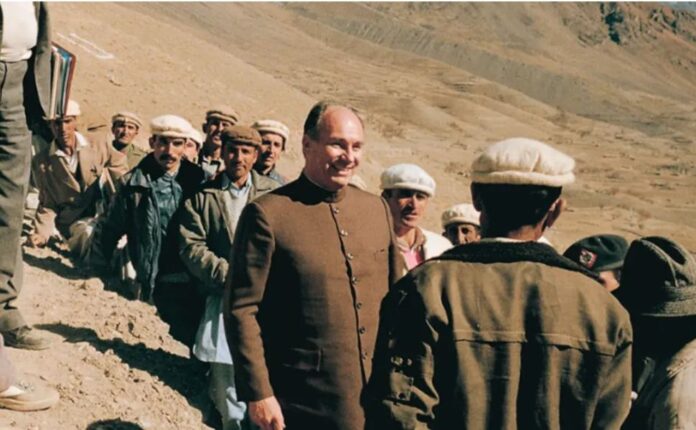Farzeen Ali Khan
Since its inception, Pakistan has been ensnared in a relentless economic crisis, marked by a disturbing upward trajectory in both external and internal debts. Compounding these economic woes is Pakistan’s chronic struggle to foster amicable relationships with its neighboring countries. Over the years, a myriad of multifaceted challenges has plagued the nation, hindering its ability to attract foreign investment and establish strong regional ties. This persistent instability has not only stifled economic growth but also isolated Pakistan in an increasingly interconnected global community. One of the biggest concerns faced by Pakistan at the moment is India’s desire to isolate Pakistan and use its influence abroad to erode its national sovereignty. Pakistan has persistently looked for creative ways to combat its isolation in spite of these obstacles. One significant example was India’s boycott of the 2016 SAARC conference, which was set to take place in Pakistan. Against this backdrop, Pakistan promptly responded by calling the 16th Economic Cooperation Organisation’s (ECO’s) conference in March 2017. This summit was a resounding success for Pakistan.
Economic Cooperation Organization (ECO) was founded by Pakistan, Turkey, and Iran. Following the end of the Cold War, ECO expanded to include the Central Asian Republics (CARs), with Azerbaijan and Afghanistan also joining as member states. The ECO region holds significant importance on the international stage, boasting the world’s largest reserves of oil, gas, and other natural resources, capable of meeting its own regional needs. Beyond its wealth of resources, the ECO’s geo-strategic location is paramount, situated at the heart of the world and bordered by Russia, China, the Indian Ocean, the Persian Gulf, and the Caspian Basin. This prime positioning enhances its potential as a pivotal hub for global economic and strategic activities.
Pakistan can leverage the Economic Cooperation Organization (ECO) platform to tackle its economic challenges effectively. The energy-rich Central Asian Republics (CARs) within the ECO can supply Pakistan with affordable energy resources, meeting the entire region’s energy demands. By developing the necessary infrastructure and pipelines, Pakistan can facilitate the seamless flow of energy, bolster regional connectivity, and stimulate economic growth. Such initiatives not only promise to alleviate Pakistan’s energy crisis but also strengthen regional cooperation, fostering a robust and interconnected economic landscape.
Additionally, the ECO region holds immense potential for boosting intra-regional trade. In 2003, the ECO Trade Agreement (ECOTA) was concluded and ratified in 2008, aiming to foster economic integration. However, the lack of progress on ratification and the delay in sharing product lists by some contracting parties have impeded the implementation of tariff concessions under ECOTA. Major obstacles also include the prevalence of non-tariff barriers (NTBs), insufficient economic complementarities, capital shortages, a weak industrial base, and a persistently high cost of doing business in the ECO member states. By addressing these challenges, ECO members, especially Pakistan, can unlock significant economic prosperity and enhance regional trade dynamics.
The Afghan conundrum remains a significant obstacle to fostering regional ties and economic integration among ECO members. Afghanistan’s development is a pressing concern for Pakistan, given their shared border and intertwined destinies. One viable solution is the creation of special development funds for Afghanistan, aimed at stabilizing and revitalizing its economy. The ECO can play a pivotal role by engaging Afghanistan through cooperative trade and development initiatives, integrating it more deeply into the regional framework. Such efforts would not only address Afghanistan’s challenges but also strengthen regional stability and economic growth, benefiting all ECO member states.
Furthermore, with climate change posing a serious challenge for developing nations, and Pakistan ranking among the top 10 most vulnerable countries, urgent action is imperative. Through the ECO forum, Pakistan can advocate for robust measures to mitigate the impacts of climate change. ECO members can collaborate to develop innovative strategies and alternative solutions to address emerging climate-related disasters. By uniting their efforts, ECO countries can strengthen their resilience, safeguard their environments, and pave the way for a sustainable future in the face of growing environmental threats.
Thus, it is crucial for Pakistan and other ECO member states to recognize the importance of this organization in transforming the entire region. As Joseph Nye aptly stated, “States must recognize that their individual growth and prosperity are increasingly intertwined with regional dynamics and cooperation.” Embracing this perspective, ECO members can harness collective strengths to foster economic growth, stability, and sustainable development, ensuring a brighter future for the whole region.
The writer is a student of International relations and can be reached at alikhanfarzeen@gmail.com.







